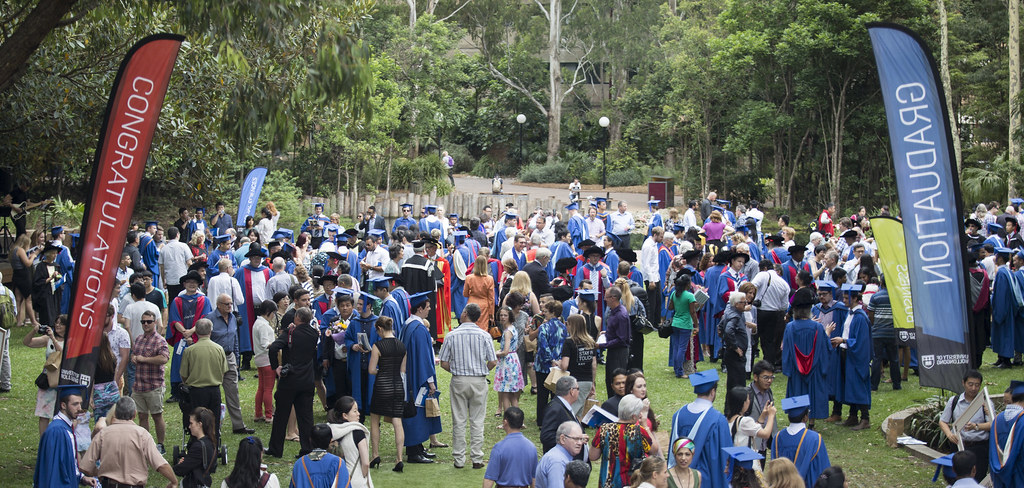December 17, 2015
Engineering students celebrate at second day of summer graduation ceremonies
More than 200 engineering students celebrated today at the second day of summer graduation ceremonies.
Deputy Chancellor Mr Noel Cornish congratulated the 215 students on their achievements.
Among the notable graduands was Katie Buchhorn, who received a Bachelor of Mathematics (Advanced). In addition to high academic achievements, Katie has contributed to the wider community, including fundraising for humanitarian projects in Africa.
She has been nominated for the Robert Hope Prize, the University’s most prestigious prize awarded annually for exceptional academic performance, outstanding leadership and making a significant contribution to the University and/or the wider community.
 Clockwise from top left: Katie Buchhorn, Professor Kurt Lambeck with Deputy Chancellor Mr Noel Cornish (left) and Vice-Chancellor Professor Paul Wellings, members of the academic procession walk to the ceremony, Dr Craig Cooper with Associate Professor Kathie Cooper, Nan Li and Hui Cui.
Clockwise from top left: Katie Buchhorn, Professor Kurt Lambeck with Deputy Chancellor Mr Noel Cornish (left) and Vice-Chancellor Professor Paul Wellings, members of the academic procession walk to the ceremony, Dr Craig Cooper with Associate Professor Kathie Cooper, Nan Li and Hui Cui.
Hui Cui and Nan Li were among the 20 engineering students to today receive PhDs in engineering. Both from the School of Computing and Information Technology, Hui and Nan have been working to improve online and RFID (Radio-frequency identification) security and privacy.
Joining his mother in academia, Craig Cooper also received a PhD in engineering for his work on wireless communication systems between vehicles on the road. Craig is the son of respected UOW business academic Associate Professor Kathie Cooper, who has lectured at the University since 1988.

Professor Cooper is an expert on the history and regulation of the accountancy profession and was formerly the Deputy Director of the International Business Research Institute.
Graduating students heard a guest lecture from Professor Kurt Lambeck AO, a renowned Geophysicist and former President of the Australian Academy of Science.

Professor Lambeck also received an honorary doctorate of Science from UOW for his contribution to the mathematical modelling of geophysical data, which enable scientists to produce the most realistic estimations of sea-level changes – past, present and future.
Over a fruitful career, with postings around Europe, North America and the UK, including at the University of Paris and at Smithsonian and Harvard Observatories, Professor Lambeck’s findings have “radically modified climate science” and “revolutionised concepts in the geosciences crucial to our understanding of the solid Earth”, it was noted when he received the 2012 Balzan Prize.
:format(jpg)/prod01/channel_3/assets/live-migration/www/images/content/groups/public/web/media/documents/mm/uow206996.jpg)
